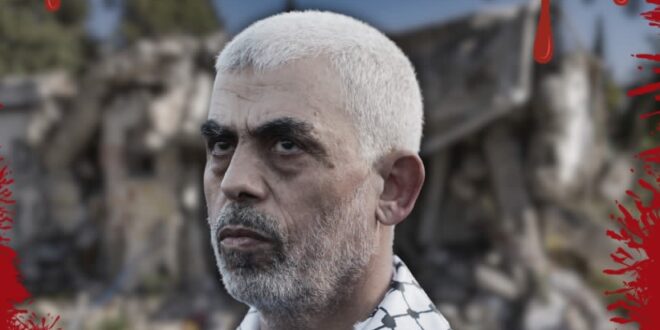Dr. Michael Milshtein said that with Hamas leader Ismail Haniyeh dead, Yahya Sinwar, who was the real person that called the shots, now has more freedom to operate.
Ismail Haniyeh was an important symbolic figure, but the one who actually made the important decisions was Yahya Sinwar, Dr. Michael Milshtein, head of the Forum for Palestinian Studies at the Dayan Center at Tel Aviv University and a senior researcher in policy and strategy, said Thursday on 103FM radio.
“The assassination of Ismail Haniyeh is an important thing,” Milshtein said. “Haniyeh is a symbolic figure – you see him mingling, making declarations, involved in various political moves, analyzing Hamas’ strategy, but he is not really the person who determines practical steps.”
Continuing, he said, “It seems that the person who makes the final decisions in Hamas is Yahya Sinwar, not Haniyeh.”
Will the assassination of Haniyeh stop hostage deal talks?
“It is possible that Hamas will take a symbolic and temporary pause in the talks,” Milshtein said. “But even after the assassination of Mohammed Deif, they did not say there would be no more talks.”
How did Sinwar view Haniyeh?
“Sinwar despises Haniyeh. In his view, these were men in suits without military experience, who did not suffer in prison like him, and do not understand that the vision is jihad, not political projects,” Milshtein continued.
“I don’t think Sinwar raised a glass of champagne [in celebration], but it creates a more comfortable operating space for him. Haniyeh did not pose a challenge to him but did get in his way. I had a conversation yesterday with a journalist in Gaza who says that the cracks that were between Gaza and Doha have widened significantly following the assassination; it’s worth keeping an eye on.”
Will more military pressure help the hostage deal talks?
He also addressed the impact of the assassination on the negotiation for a deal: “The Israeli prime minister has a thesis that says the more military pressure there is, the more we will see flexibility in Hamas’s positions,” he explained, citing the new demands for the IDF to remain in the Philadelphi and Netzarim corridors.
“Hamas also has red lines. Even after the assassination of Deif and Haniyeh, they will not agree to this,” Milshtein said.
“Hamas wants a deal, but on its terms. This ‘increased pressure’ does not lead to Hamas softening its positions, and we need to understand that. The mere introduction of new components into the text of the deal is something that will create problems in the negotiation.”
 Eurasia Press & News
Eurasia Press & News




